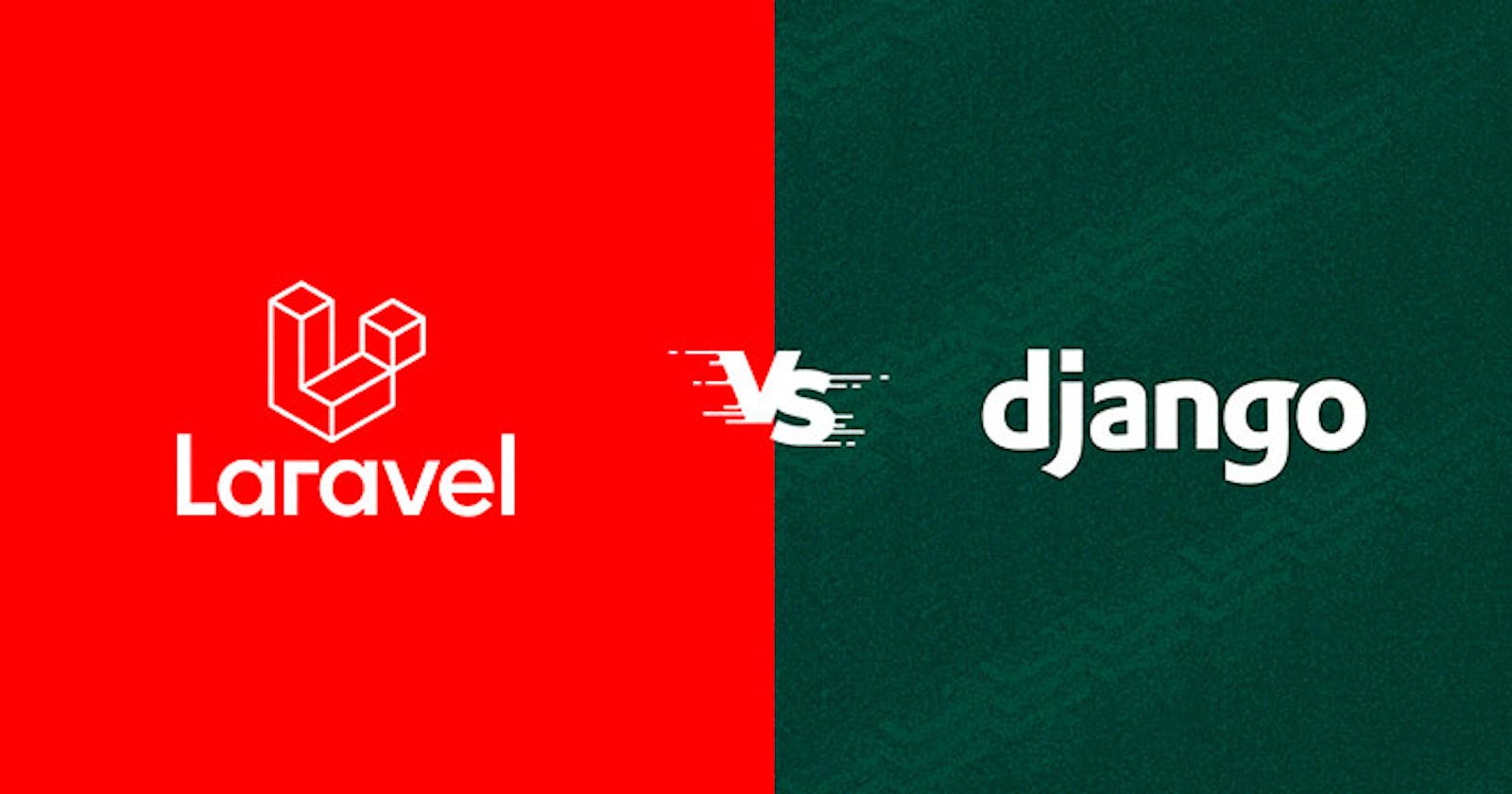Introduction
Django and Laravel are both popular web frameworks used for developing web applications. While both of these frameworks have their strengths and weaknesses, they are both great choices for building web applications. In this article, we will compare Django and Laravel in terms of their features, ease of use, performance, community support, and learning curve.
Features
• Django
Django is a high-level Python web framework that follows the Model-View-Controller (MVC) pattern. It provides a rich set of features, including an Object-Relational Mapping (ORM) system, a templating engine, automatic admin interface, and a robust set of built-in libraries. Django is also known for its security features and has excellent support for handling authentication and authorization.
• Laravel
Laravel, on the other hand, is a PHP web framework that follows the Model-View-Controller (MVC) pattern. Laravel has a modular structure and provides features like an Object-Relational Mapping (ORM) system, a template engine called Blade, and a built-in task scheduler called Task Scheduling. Laravel also provides support for queue management and provides a robust set of built-in libraries.
Ease Of Use
Django has a relatively steep learning curve for beginners due to its rich set of features and concepts like ORM and routing. However, Django's documentation is extensive and well-organized, making it easier for developers to get started with the framework.
Laravel, on the other hand, is relatively easy to use, especially for developers with a background in PHP. Laravel provides a simple syntax, and the framework's documentation is user-friendly, making it easy for developers to learn.
Performance
Django has excellent performance due to its high-level language, Python, which is optimized for performance. Django also provides built-in caching and supports scalability through the use of load balancers and horizontal scaling.
Laravel's performance is comparable to that of Django. Laravel provides support for caching and optimization of database queries through the use of an Object-Relational Mapping (ORM) system.
Community support
Both Django and Laravel have large and active communities that provide extensive support through documentation, forums, and open-source projects.
Django's community is primarily focused on Python, which is widely used in the scientific and academic communities. As a result, Django is widely used in the scientific and academic communities for developing data-driven applications.
Laravel has a large community of PHP developers who provide extensive support through online forums, open-source projects, and documentation.
Learning Curve
Django's learning curve is relatively steep due to its rich set of features and concepts like ORM and routing. However, Django's documentation is extensive and well-organized, making it easier for developers to get started with the framework.
Laravel, on the other hand, is relatively easy to learn, especially for developers with a background in PHP. Laravel provides a simple syntax, and the framework's documentation is user-friendly, making it easy for developers to learn.
Conclusion
Both Django and Laravel are great choices for developing web applications. Ultimately, the choice between Django and Laravel depends on the specific requirements of the project and the developer's familiarity with the languages and frameworks. Regardless of the choice, both Django and Laravel provide an excellent platform for building web applications.
Ultimately, the choice between Django and Laravel depends on the specific requirements of the project and the developer's familiarity with the languages and frameworks. Regardless of the choice, both Django and Laravel provide an excellent platform for building web applications.

